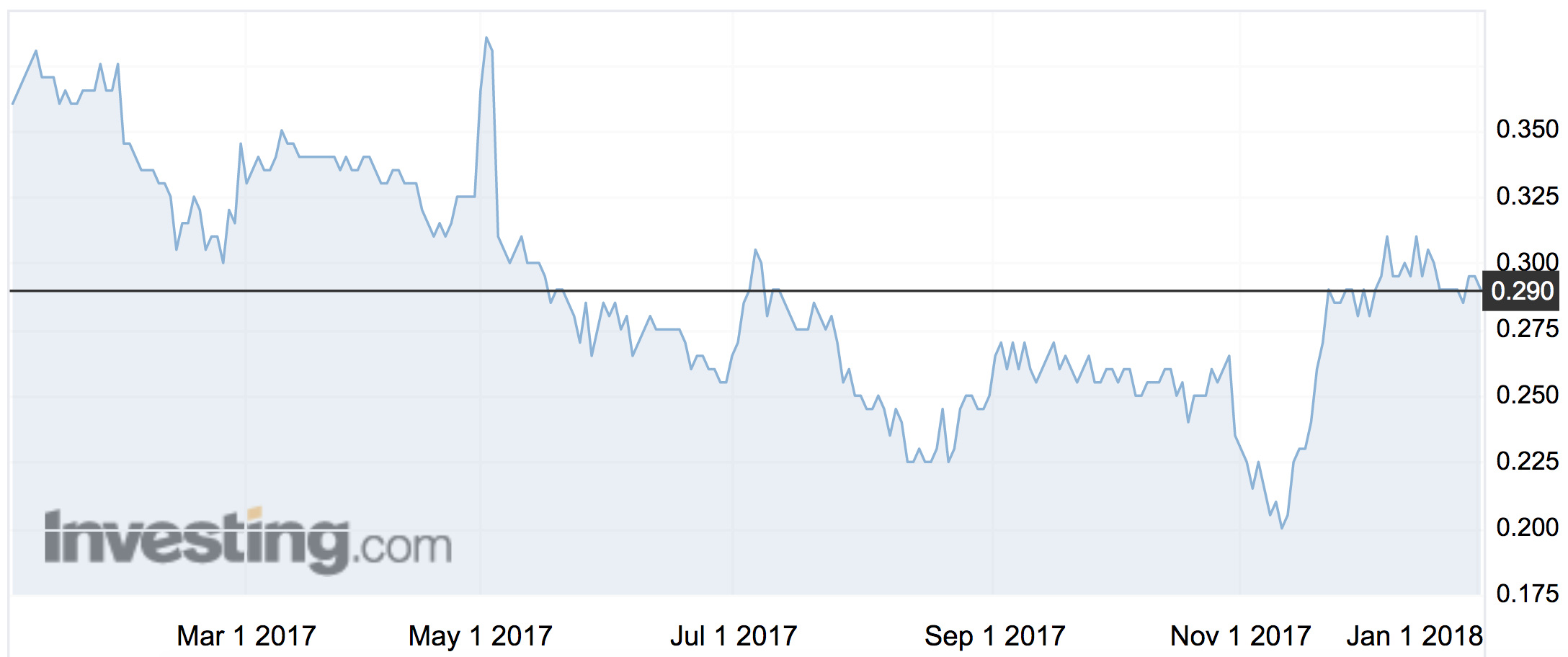Admedus wants to clear up the ‘conspiracy theories’

Pic: Luis Alvarez / DigitalVision via Getty Images
Any self-respecting company needs a vision statement, preferably one with a reference to 2020 because it sounds so futuristic even though it’s a mere two short years away.
We tender as evidence Sirtex’s canned 2020Vision charter under sacked CEO Gilman Wong (sorry, a bad example) and Clinuvel’s Growth 2020 blueprint.
In the case of the regenerative medicine play Admedus (ASX:AHZ), it’s all about “the 2020 Aspiration” — and my what a noble mission statement it is.
While most managers shy from concrete targets, Admedus boldly aspires to sales of $70 million in 2019-2020, with earnings before interest, tax, depreciation and amortisation (EBITDA) of $22 million (balanced between the US, European Union and local markets).
Admedus in 2016-2017 clicked over $22 million of revenue but lost $10.8 million on the EBITDA line. Management also expects staff, general and administrative costs to decline to 37 per cent of sales by 2020, compared with an unacceptable 117 per cent in 2016-2017.
Leaving nothing to chance, Admedus provides its own report card. It’s redolent of a youthful Crucible’s hit-and miss-efforts, including this blunt but true assessment from his junior PE teacher: “Timothy is uncoordinated.”
Admedus’ self-ascribed “good” attributes includes “credible financial results” and progress on its modified products (called Adapt).
The bad includes “share price trajectory”.
And the challenges for the coming semester? Achieving a stable sales force and overcoming what management darkly refers to as “conspiracy theories” about the business.

Twigging to the opportunity
Admedus was formerly known as Allied Healthcare, but evolved from Biomd which in 2005 acquired a mob called Celxcel. Formed in 2001, Celxcel had been looking at biological implants based on kangaroo tissue. But this opportunity hopped away before the company could tie it down.
Admedus has the privilege of being backed by Minderoo Investments, the private company of iron ore magnate Andrew ‘Twiggy” Forrest and his wife Nicola.
Rumors that Twiggy invested in biotech after misreading haemoglobin for hematite are merely conspiracy theories. And even though former Fortescue chairman Herb Elliott also chaired wearable play DorsaVi (which we covered in December), we’re not implying any grassy knoll plot to take over the sector.
Admedus is Perth based, with its manufacturing operation in Malaga. But it’s a true citizen of the world, with its HQ in Minneapolis and a corporate services function in Brisvegas.
Adapt-ing to the times
Admedus’ core product is based on its Adapt engineering process, to produce implantable bio-scaffolds for various soft tissue repair applications.
The company’s oldest, flagship product is Cardiocel, an elastic patch for cardiac repairs and reconstructions. The bovine pericardial patch Cardiocel is claimed to be more effective than rival products on measures such as preventing clotting and its ability to grow with native tissue, with little or no calcification.
Compared with artificial valve transplants, patches are less likely to result in infection and rejection by the body.
A 3D version of Cardiocel is due to be released in the US on February 1 next year.
Admedus may also develop a 3D version of Vascucel, a similar collagen scaffold for the “harmonious healing” of dodgy arteries.
While the cardiovascular patch sector is crowded, four of Admedus’ rivals have been affected by US Food and Drug Administration recalls.
Admedus also does a strong line in infusion, which is not a reference to a nice Darjeeling but its role as a distributor of medical products such as infusion pumps, tubing and syringes.
Then there’s the famous 75 per cent-owned Admedus Immunology (AI) arm. We say “famous” because it’s run by immunology godfather and Australian of the Year Professor Ian Frazer.
Along with the late virologist, Dr Jian Zhou of the University of Queensland, Professor Frazer developed the Gardasil cervical cancer vaccine that greatly reduced the risk for millions of women.
AI is awaiting final results from a herpes simplex virus 2 (HSV-2) trial, with the phase IIa study showing an encouraging “level of activity” and “interesting trends” in the HSV-2 affected cohort, although the interim analysis showed safety, reduced viral shedding but no benefit for new sores.
The division is also progressing an initial human papillomavirus (HPV) study targeting related head and neck cancers. These cancers – which are believed to be related to oral sex – are on the rise.
The program was backed by a $250,000 grant from the now re-elected Queensland Palaszczuk Government, which enthused about these indications becoming a billion-dollar market.
Taking on the world
In November, Admedus won approval from the Indian regulator for Cardiocel, thus opening up an annual market of 50 million cardiac patients (as well as the medical tourism market).
The company also appointed Genpharm as distributor for the Middle East and North Africa region. Admedus is also looking at launching the Adapt range in Thailand, Vietnam and the Philippines and is also chatting to Chinese regulators.
On the infusion side, Admedus’ fortunes were boosted with a recent contract to supply Arcomed infusion pumps to the Royal Adelaide Hospital, which threw open its doors to the ailing masses last September.
Infusion is a significant part of the business: of Admedus’ revenue in 2016-2017, $15.5 million derives from infusion and $6.9 million from Adapt.
Code Red on costs boost bottom line
Despite a $12.67 million loss in 2016-2017, management says the company is still on track to reach financial break-even in the last quarter of 2018, “leading to profitability in the full calendar year 2019”.
As part of a current-year program dramatically titled Code Red, Admedus has undergone a much-needed costs purge, with staff, general and administrative expenses falling by $8.4 million, or 25 per cent, to $25 million.
At the end of the September 2017 quarter, Admedus had cash of $7.5 million, down from the June 30 balance of $11.3 million, following a placement and rights issue that raised $18.3 million in September 2016.
Admedus also entered a $10 million secured debt funding arrangement with Partners for Growth that issues the lender warrants over 4,938,799 Admedus shares.
Admedus says while AI has sufficient funds for the head and neck study, it is reviewing its options to continue the program “in a manner that balances maximizing their potential with returns for its shareholders”.
Dr Boreham’s diagnosis:
As management opined at the AGM, Admedus shares have not exactly been trajectorizing in the right direction. But they did spurt from 20c on November 10 to 29c on November 30.
The share price has ranged from 13.9c (July 2012) to $1.72 (February 2014).
The laws of probability suggest that at least one of Admedus’ three arms should come good. The company’s progress has been slower than expected, but if this were a hanging offence 99 per cent of biotechs would be swinging in the breeze.
We’ll leave the last words – and an apt holiday reflection – to Admedus:
“The development of innovative products in the biomedical and healthcare industries will always have an element of risk associated with it.”
This column first appeared in Biotech Daily.
Disclosure: Dr Boreham is not a qualified medical practitioner and does not possess a doctorate of any sort. His favourite conspiracy theory – nay, the truth – is that JFK shot himself.
The content of this article was not selected, modified or otherwise controlled by Stockhead. Stockhead has not provided, endorsed or otherwise assumed responsibility for any financial product advice contained in this article.
UNLOCK INSIGHTS
Discover the untold stories of emerging ASX stocks.
Daily news and expert analysis, it's free to subscribe.
By proceeding, you confirm you understand that we handle personal information in accordance with our Privacy Policy.








